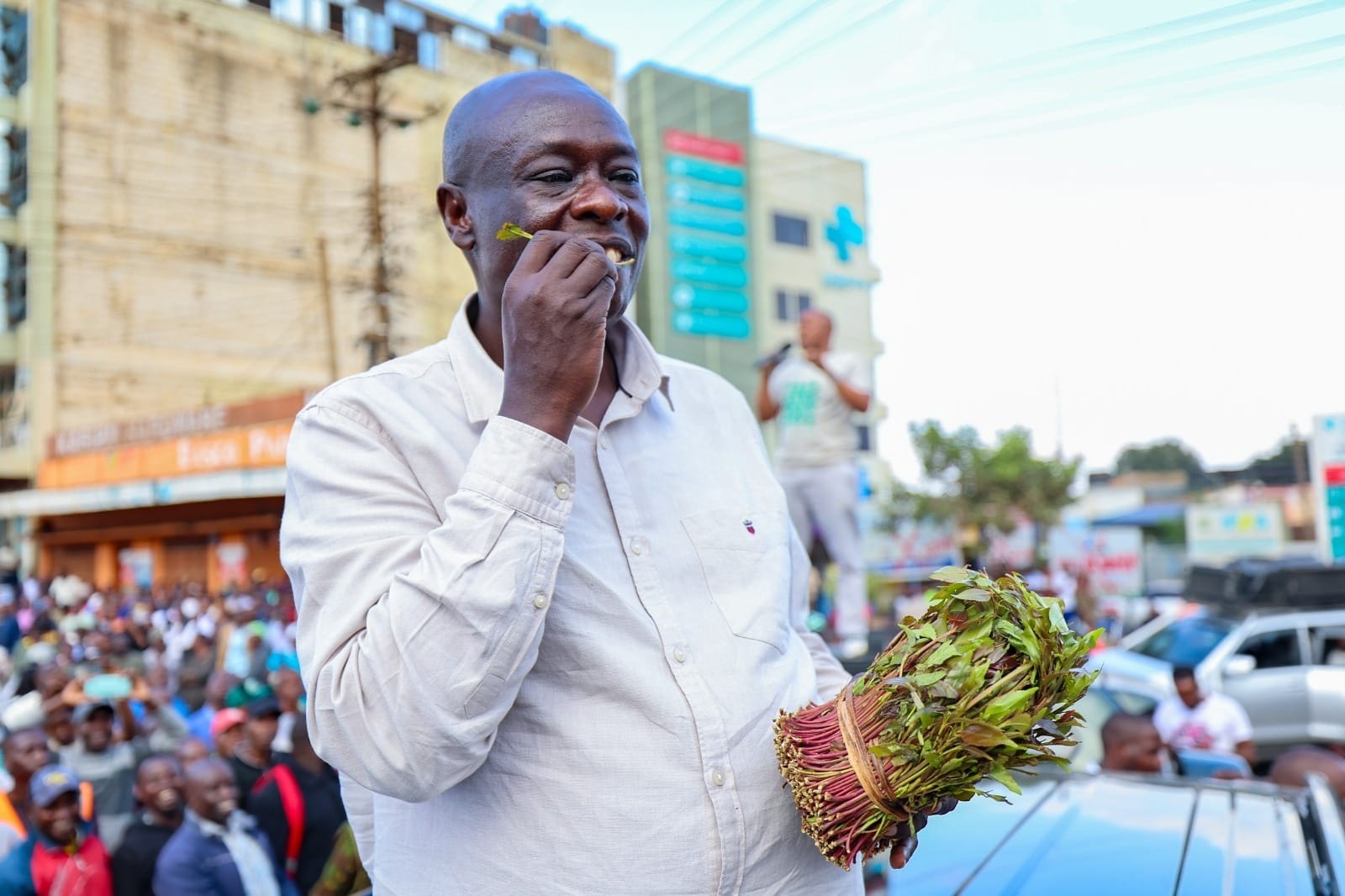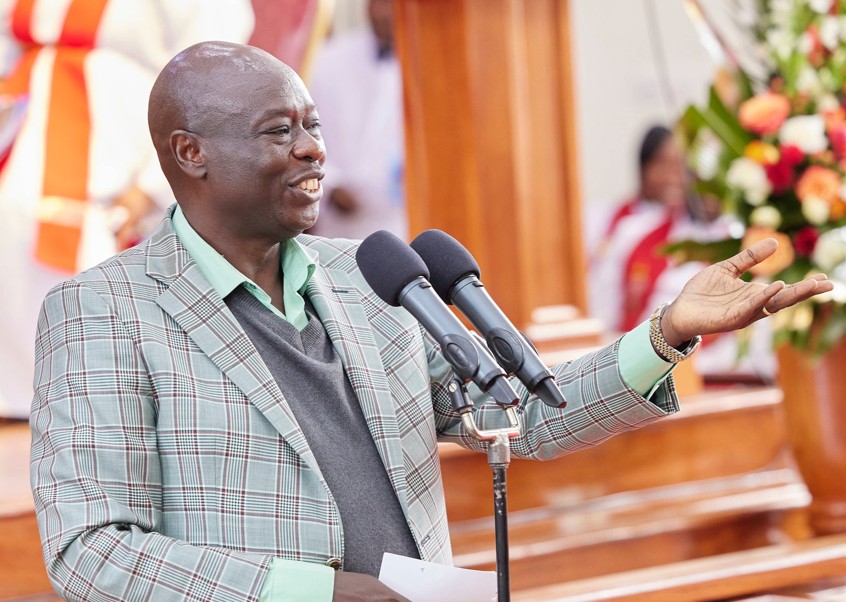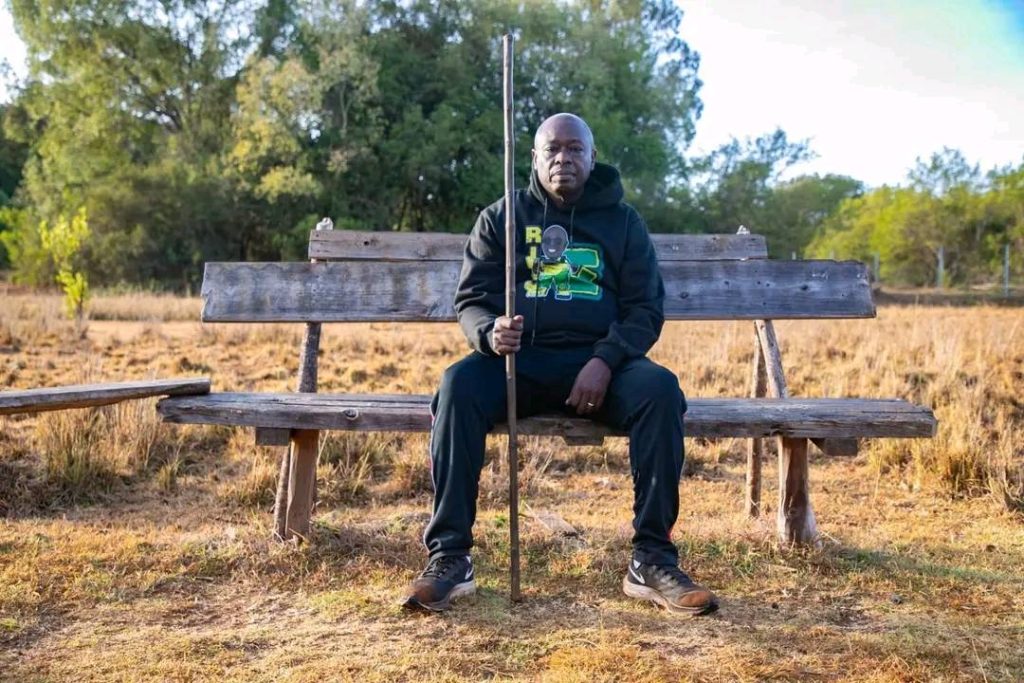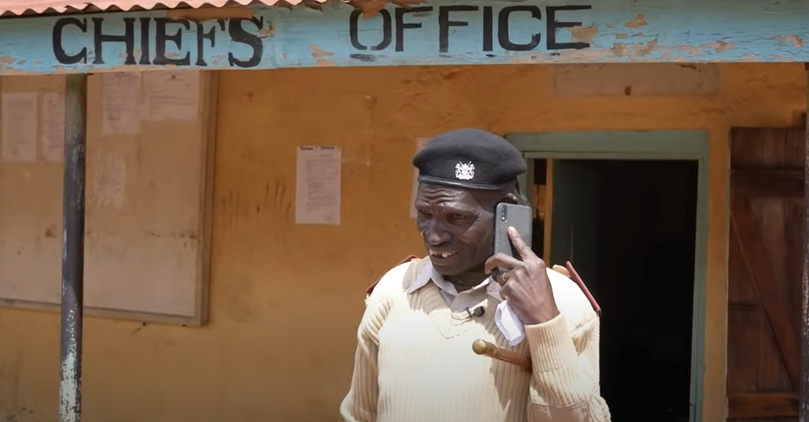Usiguse Murima and other phases that broke the internet in 2024

Usiguse Murima which loosely translates to ‘do not touch or interfere with Mt Kenya affairs’, was propounded by the former Deputy President Rigathi Gachagua.
The former DP popularized the phrase amidst political heat in the country where he stood up to defend the vast Mt Kenya region.
In one of his political engagements, Gachagua told political rivals; ‘unaweza fanya chochote unataka lakini usiguse murima (You can do whatever you want but do not touch the mountain).

The phrase became viral forming part of the country’s political rhetoric. His allies started using the same phrase while reprimanding other political leaders who were seen as interfering with the affairs of the Mt Kenya region.
However, at the height of his political fallout, the phrase was interrupted as being used to spew tribalism leading to his historical impeachment.
Anguka Nayo
Anguka Nayo can be interrupted as ‘go down with it.’ The phrase was derived from a popular song by a Kenyan group, Wadagliz.
The song so far has gained over nine million views on YouTube.
Anguka Nayo gained the much-needed attention during the Gen-Z-led protests opposing the Finance Bill 2024.
Various hashtags were created on social media platforms pressuring the government to drop the contentious Finance Bill.

In over a week, protesters could jam on the song while occupying the streets while others pushed the hashtag on various social media platforms.
The struggle paid off as President William Ruto declined to assent into the contentious Bill.
However, other Kenyans just used the phrase and the song for entertainment purposes for instance, Nominated Senator Karen Nyamu posted a video dancing to the Anguka Nayo song which attracted mixed reactions from Kenyans.
Niwekee za Kabej
Niwekee za Kabej is a phrase synonymous with people online who are accustomed to soliciting for financial favours to cover petty household needs.
Social media users using the phrase normally target well-to-do compatriots who they plead with for monetary favours saying ‘niwekee za kabej.’
The phrase has since morphed and gained more relevance with most people using it to ask for small financial favours.
‘Kabej’ is derived from cabbage which costs roughly Ksh100 depending on the market.
Maandishi haya si mageni jijini
‘Maandishi haya si mageni jijini, labada kwa mgeni jijini. Ila kwa wenyeji wa jji, ni maandishi tulioyazoea ( These writings are not new in the city except for visitors. However, city dwellers are used to them).
These words have gone viral on various social media platforms especially TikTok where users are using it to refer to scenarios in which gullibles are taken advantage of in relationships, businesses and other situations.

For instance, some have used to expose their uncles who often promised that they would help them secure well-paying jobs immediately after graduation but ended up not honouring their pledges.
Or in a relationship when one of the partners fails to respond to messages and then writes back the following day stating that they fell asleep or the phone ran out of power.
The popular phrase was coined by an award-winning journalist Pheona Kenga who used it while covering a story for a local TV station.
Finya Kabisa
This phrase is used mostly on X to encourage users to double their attacks on rivals. X users apply this phrase to add fuel to an already worsening situation.
It is mostly used when bigwigs send cold responses on various topics, especially in a way deemed to bring down the other person.
So users encourage one party to exert more pressure saying, ‘Finya, bado kanapumua.’
This phrase is used interchangeably with ‘malisa’ which means destroy completely.
We will be there, no matter what
This phrase was also made popular by social commentator Gabriel Oguda before the formation of the broad-based government.
Oguda used the phrase then while pointing out flaws in Ruto’s government and those in power saying, ‘We will be there no matter what!’.
It slowly became a political rallying call then died down after Ruto reshuffled his cabinet and accommodated leaders from the opposition.

Oguda was also the force behind ‘clouds are gathering’ and ‘the fear is gone’ phrases which he used to push specific political narratives.
Kugongewa ni constant
Kogongewa ni constant gained prominence due to various cases of infidelity and cheating in relationships.
Although it was viewed by some quotas as being used to promote infidelity, some people used it continuously to warn others in relationships about the possibility of being betrayed.

Nonetheless, others used the phrase to encourage partners to resolve their issues amicably without violence following the upsurge of cases of femicide in the country.
Kufa Dereve, Kufa Makanga
This was purely a political phrase which gained so much traction during the impeachment hearing of former Deputy President Rigathi Gachagua.
During various public participation forums, people were heard shouting ‘Kufa dereva, kufa makanga.’
Those behind the phrase wanted both President Ruto and his then-deputy to vacate office.

Reacting to the phrase, Rarieda MP Otiende Amollo warned that pushing for that motion would plunge the country into a political crisis since IEBC had not been fully constituted.
However, other political leaders including Wiper Party leader Kalonzo Musyoka and former Defence Cabinet Secretary Eugene Wamalwa continued using the phrase interchangeably with ‘shuka Zakayo.’
Misheveve
The word ‘Misheveve’ rattled cyberspace, quickly becoming the most viral utterance in the mouths of most Kenyans.
It all began after a local Chief in a village in Western Kenya narrated to a news crew an incident that led to atrocious acts committed by a disgruntled man in his location.
Protus Wechuli Sifuna, a chief from Saboti in Trans Nzoia county, was recounting how a local attacked his father after he was not-so-impressed with what his mother had decided to prepare for dinner that night.

In the viral video, Wechuli dramatically recounted the domestic dispute: “The young man asked, ”Mama umepika mboka gani leo?”
The mother responded, ”Nimeunda misheveve.”
He said, “Sitaki misheveve, nataka sarati.”
The sound went viral especially on Tiktok with thousands hopping to that Misheveve challenge.
Misheveve is a Luhya word which actually means pumpkin leaves.
Other words and phrases which have gone viral this year include kufinish kumalo, we mzee, chorea chorea, greatness tupu, naenda mjengo, Kasongo |Yeye, and gotha among others.















